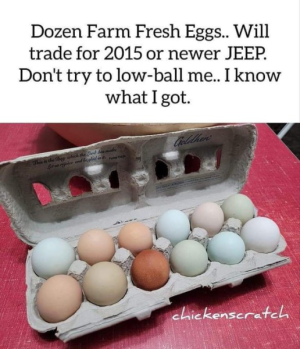Imzadi
♥ Saved by an angel in a trench coat!
- Joined
- Oct 29, 2004
- Messages
- 40,713
I think a perceived shortage can also directly cause a real shortage.
Take the TP during the pandemic - everyone said there was going to be a shortage, so people went out and bought a bunch of extras. And when the shelves are low, and people are worried, they grab another few extras. So people who would usually have 8 extra rolls of TP at home, now have 88 extra rolls. And the whole town/state does that. Now there really is a shortage - and when the stores get a few on the shelves, they're snatched up really quick. "Next time I'm here they might be out again." "Oh the shelves are empty, it's an ongoing problem, I better buy another 48 pack." If people bought their normal amount, that never would have happened.
This is exactly what had happened during the pandemic. At the beginning, we were told over and over by all the toilet paper manufacturers that there would be no shortage. They have plenty of supplies and the TP was made in the U.S., so even shortages due to cargo shipping didn't affect them.
But, then, photos on social media and the news showing people buying hoarding levels of toilet paper caused panics. Also the prices increased tremendously and made other people buy extra, way more than they normally stock up on - not necessarily "hoarding" levels, but definitely more, because there were then TWO reasons to stock up.
The prices have never gone down, at least in this area, even though there is no longer a shortage on TP. So WHY the continued price increase?
 Only because people DID and do and will buy it at those prices. So stores, rake in the profits instead of lowering the prices. After all, why would they lower the price if people are willing to pay.
Only because people DID and do and will buy it at those prices. So stores, rake in the profits instead of lowering the prices. After all, why would they lower the price if people are willing to pay. Same for eggs. During the pandemic, the price went up to $7 here. NOW, they are up to $8+. And people are paying those prices.


